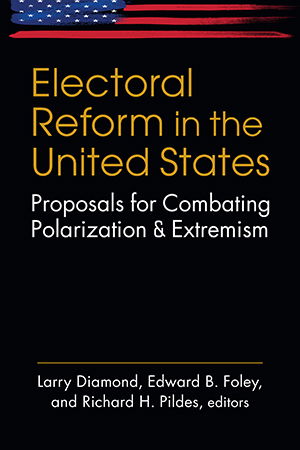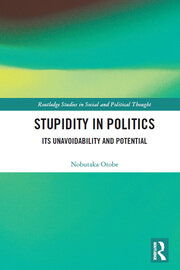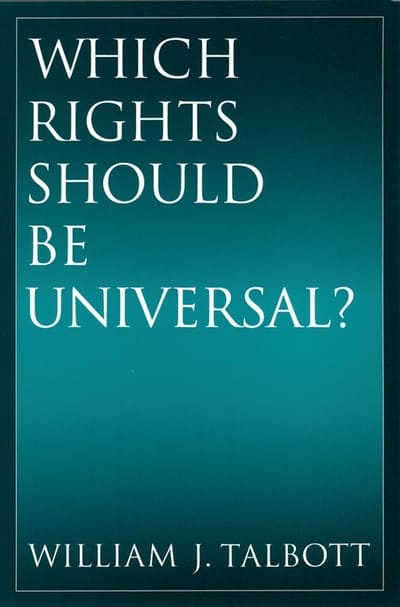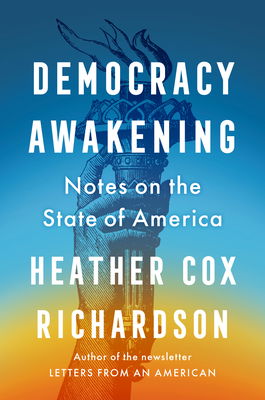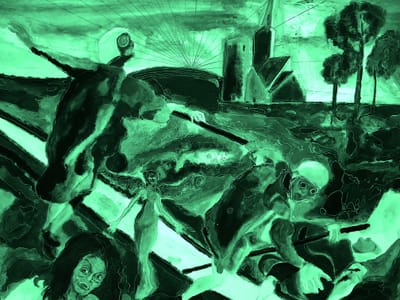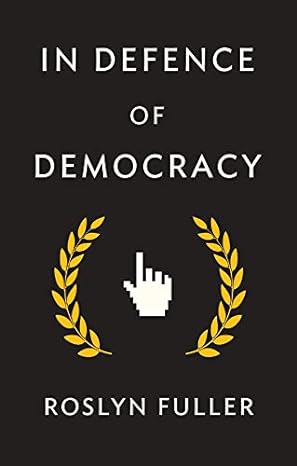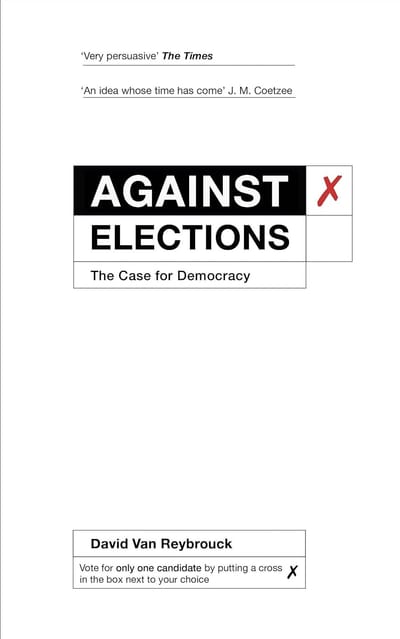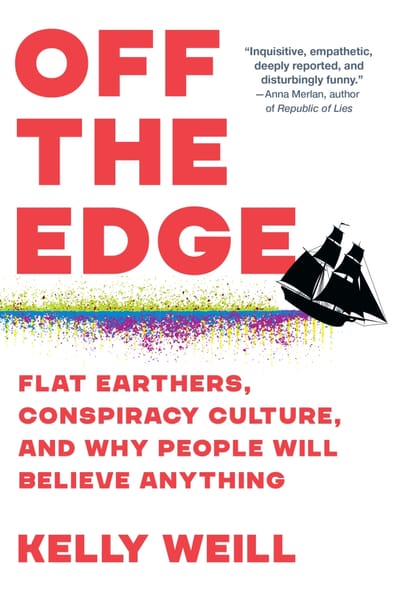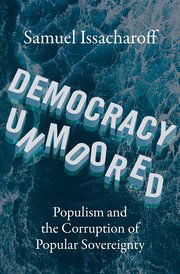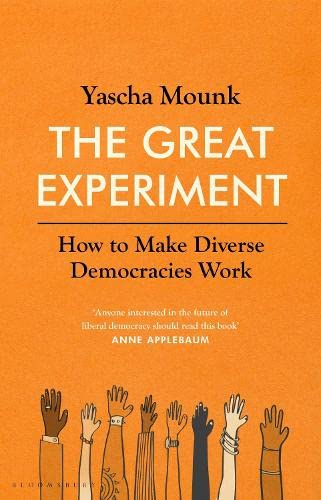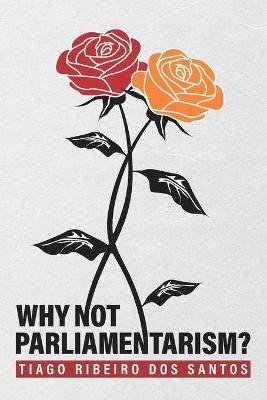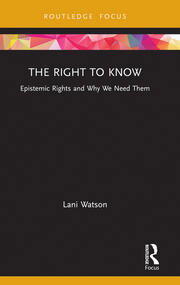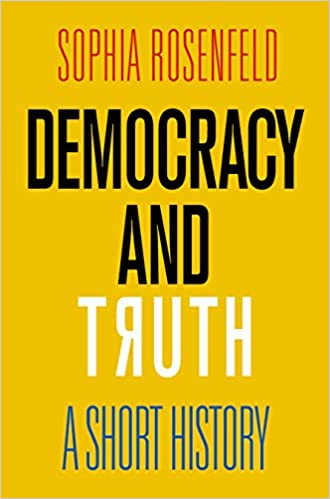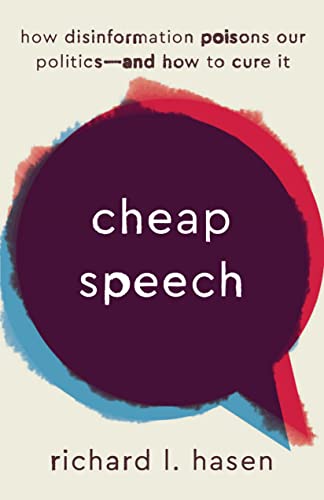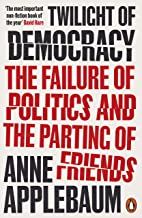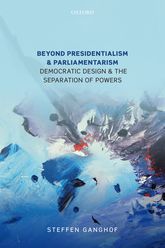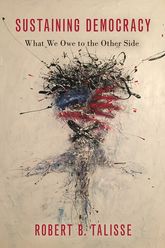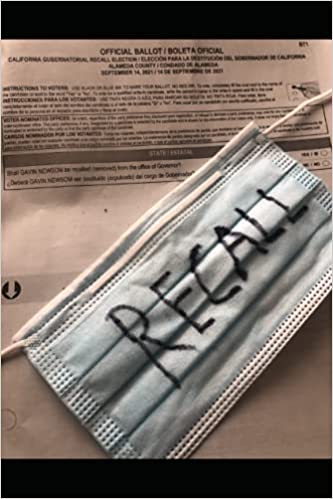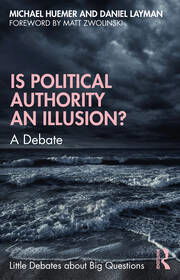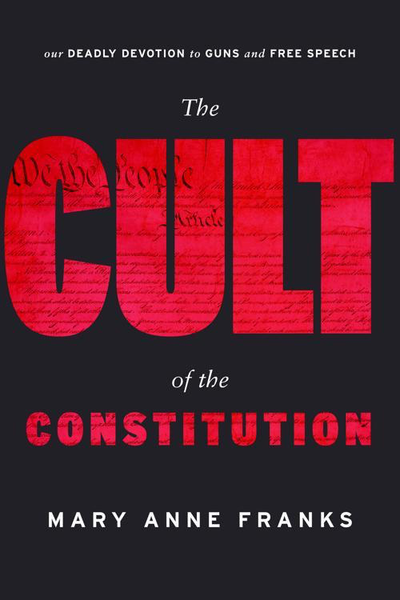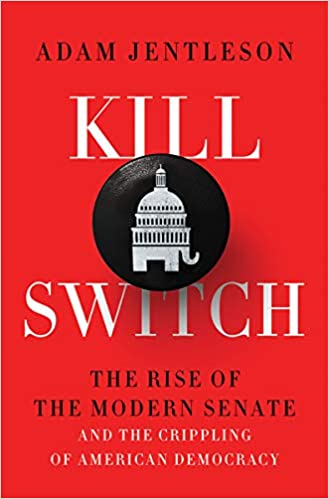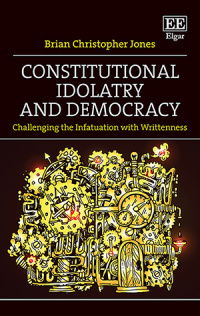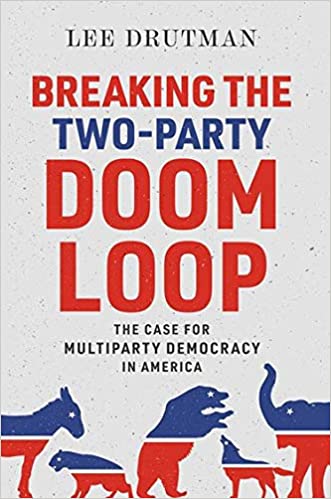A Hornbook of Democracy Book Reviews
One of the big things that either Trump or Musk or both have got up to since the recent Presidential inauguration in the U.S. has been the defunding and destaffing of USAID, the Federal agency responsible for dissemination of foreign aid around the world. According to the New York Times, the results of that initiative have already been quite dramatic. Walter Horn reviews.
Read MoreIn a useful 2003 primer for those thinking about voting rules, Daniel Horowitz writes, “To evaluate an electoral system or to choose a new one, it is necessary to ask first what one wants the electoral system to do.” No doubt, the goal of electoral systems is to aggregate preferences and produce policy choices from such tallies. But Horowitz insists that no system functions as “a passivetranslation of individual wishes into a collective choice.” Thus, he quite reasonably proclaims (though without producing anything resembling an argument for it) that “our voting rules will always bias the results in one way or another” Voter preferences, he says, “are shaped by the electoral system [and] cannot exist independently of it.” Walter Horn reviews.
Read MoreIn what might be reasonably surmised to be a response to the recent Congressional and Presidential elections in the U.S., I have been hunting around for a book to review that is focussed on the interrelationships between democracy and intelligence. Walter Horn reviews.
Read MoreWilliam Talbott believes that certain rights are in some sense universal–applicable to all human beings with the capacity for autonomy, and perhaps many non-human animals as well. Now, when someone says that this or that alleged entitlement is a human right, there is an important ambiguity that may arise. They may mean that the alleged prerogative (let’s say making fun of some political figure) is a protected activity, something for which no one can be punished–at least in a particular jurisdiction. Alternatively, they may be saying that, whether or not the government in question currently protects these kinds of activities, making it immune from punishment, every government should do so. Walter Horn reviews.
Read MoreAt the beginning of David Byrne’s wonderful movie True Stories, the filmaker/narrator asks his viewers, “Do you like music? I know…everybody says they do.” That also seems to me to be true of democracy. Everybody says they like it, and they also fear for its future. At least in the U.S., there is a tremendous amount of concern in the air about “losing our democracy,” as if that is something we’ve had here for a long time, but is about to either wither away or be stolen from us. Walter Horn reviews.
Read MoreAs I suppose everybody knows, populism is a wildly popular academic subject at present. The number of papers and books coming out that focus on the concept is mind-boggling. And, naturally, Comparative Politics and Political Philosophy Departments are promoting new programs for both faculty and students to immerse themselves in populist studies. That, one must suppose, is the main reason for the appearance of this gargantuan collection. Walter Horn reviews
Read MoreIn previous writings here and elsewhere, I have written as if the forms of democracy that might be endorsed or criticized are pretty much exhausted by the following broad and basic categories: Elective (however voting is conducted) “Republican” (i.e., severely restricting the sorts of things the populace is allowed to do) “Populist” (i.e., intending to give “the people” what they want in almost every arena) Sortitionist (however their lotteries may be conducted) Direct (where people rule without need of representation)... The problem with this taxonomy is that Roslyn Fuller has recently written three compelling books on democratic theory showing that it exhibits a significant lack of imagination. Walter Horn reviews.
Read MoreIt wasn’t terribly long ago, just 1999, that recently anointed Nobel Laureate, Amartya Sen, wrote a celebrated essay (“Democracy as a Universal Value”) according to which the spread of democracy in the 20th Century was perhaps the most important device for human betterment since the domestication of cud-chewing mammals. In Sen’s view, democracy–something he took to include most elements of classical liberalism–even prevents famines. Surely, Sen sang, nothing else during that period can be justly claimed to have delivered the miracles accomplished by the proliferation of democracy. Walter Horn reviews.
Read MoreI spent a good deal of space in my review of Rick Hasen’s previous book, Cheap Speech, marveling at the author’s prodigious industry. Rather than descend into that rabbit hole again, I will say here only that each new book, paper, op-ed, TV appearance, etc. may cause one to wonder if prior, ostensibly scientific claims regarding the absolute impossibility of perpetual motion machines ought to be reconsidered. Walter Horn Reviews.
Read MoreGiven the fact that it is now almost commonplace to shove a significant portion of blame for the pernicious hyper-partisanship now evident in the U.S. on the 1950 American Political Science Association study on political parties one can’t deny the courage it must have taken for that august society of social scientists to give the same issue another public look. It’s not only the numerous mentions of the Schattschneider-led post-WWII report that make clear that the authors often had the earlier work at the back of their minds, but the much more cautious tone exemplified by the new report. Walter Horn reviews.
Read MoreOne might put contemporary assessments of Schmitt into four major categories. First, there have been unapologetic admirers. However, because of Schmitt’s association with Nazism, members of this group may prefer to go by aliases on Truth Social rather than try to publish in mainstream journals. Second, there are those who focus on Schmitt’s anti-Semitism and the apparently self-serving metamorphosis of his attitudes toward the Nazi Party. Third, we can find writers who (mostly) set aside Schmitt’s personal proclivities and zero in on rebutting his arguments against liberalism and parliamentarism. The fourth group consists of those observers who seem to be primarily interested in whether any sort of livable society might be consistent with an admission that Schmittian attacks on liberalism and/or democracy might be sound—at least to some extent. Walter Horn Reviews
Read MoreAnybody who has spent any time at all on Twitter or Breitbart—or the comments section following a political piece found on the New York Times, Yahoo, or The Hill websites will be quite familiar with the extremely wide variety of inconsistent ideas that people are absolutely sure are true. It’s not just that some folks believe—contrary to everything we have learned in school and seen on TV or the movies—that the Earth is flat or that the Holocaust never happened or that many Democrats are lizard people who answer only to George Soros. It’s that proponents are so positive of all these things that they are very quick to make fun of anybody who expresses any doubts. True believers think skeptics are hilarious, fools who it is hardly worth the breath it would take to correct their elementary, laughable errors. Walter Horn reviews.
Read MoreThe introduction to Samuel Issacharoff’s new book on the rise of populism, Democracy Unmoored, leaves little doubt about the depth of anxiety that current governmental trends around the world produce within the author’s breast. He ponders: How much power can an executive be granted in a legitimately democratic regime? Is there a limit to the largess that can be distributed by an incumbent government during the run-up to an election? Is nearly constant direct communication between a head of government and an electorate via television or social media, an abuse of power? Is legislative activity a safer bet for citizens than executive power? Does a populist movement always require a “strong man” to get it going…and eventually to pull all the strings? Walter Horn reviews.
Read MoreYascha Mounk has made his name writing and speaking about democracy, populism, threats to liberalism and the like over much of the past decade. I quite enjoyed his 2018 book, The People vs. Democracy, largely because of its stress on the ways in which different countries can suffer from two separate but related political deficits: democracy without (classic) liberal rights protections, and liberalism without sufficient democratic mechanisms. Walter Horn reviews.
Read MoreIn the mid-1980s, a draft of a paper by Yale comparative politics scholar Juan Linz on the preferability of parliamentary governments (where voters pick only legislators, who pick the prime minister themselves) to presidential governments (in which voters select their own heads of state) began to circulate among political scientists. Linz had been writing insightfully about the tendencies of various types of democracies to descend into authoritarianism since the 1960s, so it is natural that this distillation of his far-ranging thoughts on the subject of the perils related to governmental structure would attract significant attention. Walter Horn Reviews.
Read MoreSince the Victorian days of W.K. Clifford, when philosophy types have talked about epistemic duties, they have usually been concerned with “the ethics of belief.” This was a major focus of William James, as well as such later philosophers as (my old grad school prof) Roderick Chisholm. That subject, which involves what steps we are obligated to go through in order for it to be OK for us to believe something, remains a hot topic in epistemology. Walter Horn Reviews.
Read MoreWhen one considers why so many ostensible democracies, both historical and contemporary, seem so bad at providing citizens the ability to efficiently devise public policies that they actually want or like, a number of possibilities may suggest themselves. Perhaps it is difficult (or even impossible) for many of the residents to vote—or those in power don’t care much what those allowed to vote actually say. Maybe there are no--or insufficient--protections of individual rights. Possibly, the voting mechanisms are deficient in some way: elections might be too infrequent, tally votes in an inappropriate fashion, or fail to touch on the most important issues facing the electorate. Walter Horn Reviews.
Read MoreThe literature on polarization in the U.S. –both of the two main political parties in the country and of the electorate at large–has been plentiful during the last decade. In fact, Sam Rosenfeld’s meaty book is not even the first on this subject that I’ve reviewed here, for both Lee Drutman’s Doom Loop and Robert Talisse’s Sustaining Democracy are also largely focused on it. Walter Horn reviews.
Read MoreWhen the great 17th Century rationalist philosopher Gottfried Wilhelm Leibniz was a mere Junge of 19, he wrote a dissertation on the “combinatorial arts” in which he contemplated the building of a machine that would “answer all questions” and “resolve all intellectual disputes.” He apparently got this idea from Raymundus Lullus (Ramon Llull), a 13th Century monk and alchemist who believed that his own combinatorial, pseudo-algebraic system, Art , could be used to prove every correct Christian doctrine–and to refute all heresies. Walter Horn reviews.
Read MoreProfessor Rick Hasen is in many ways the perfect person to write a book on the problems that the First Amendment to the U.S. Constitution are creating for American democracy in the internet age. He is an eminent scholar of both constitutional law and political science. He’s indefatigable and incredibly industrious, churning out books, articles, interviews, and news show punditry on a nearly daily basis. And he is sought out by the media because he is both thoughtful and comprehensible: while he is always searching for new and subtle ways in which either the Congress or the Courts can somehow save what’s left of electoral democracy in the U.S., he presents his ideas in ways that couch potatoes as well as future attorneys in the University of California system can fathom. Walter Horn Reviews.
Read MoreThere’s an (overused) internet meme from the movie Princess Bride, in which the character played by Mandy Patinkin looks with concern at the Wally Shawn character after one of the latter’s many repetitions of “It’s inconceivable!” and says, “You keep using that word; I do not think it means what you think it means.” That warhorse popped into my head frequently at Anne Applebaum’s use of “democracy” in her elegaic new book. Walter Horn Reviews.
Read MoreAs Steffan Ganghof points out in his comprehensive book on alternative governmental structures, there are two angles from which one can discuss the alleged merits of the particular system, “semi-parliamentarism,” that he endorses. One approach is by empirical study. This involves a consideration of what have been the instrumental values of similar and dissimilar approaches around the world and throughout history. I should not like to disguise the fact that I could opine on those matters only with extreme diffidence. Walter Horn reviews.
Read MoreRobert Talisse makes a passionate plea for a particular sort of civility in his new book. But he wants us to understand that it's not precisely politeness on which democracy depends, since good adversarial democrats should be congratulated rather than scorned for cross-examining, contradicting, arguing, and a number of other behaviors made famous by a certain Monty Python sketch. Walter Horn Reviews
Read MoreIt seems quite intuitive,-indeed patently obvious,-that in a self-governing democracy, the citizenry --or the majority of it anyhow--should have all and only the governors and laws that they want. So, the processes in countries with parliamentary arrangements for dumping heads of state by votes of no confidence and for revising their “constitutions” by simple majority vote seem to be precisely what is required by democratic principles. Walter Horn Reviews.
Read MoreWhen two or more scholars are to face off on some issue, I suppose it is best if they agree on some—though obviously not all—of the key issues they will be discussing. Perhaps the common ground will involve foundational matters and the disagreements will arise on what is claimed to follow from them. Or it may be the other way round: the areas of agreement may appear among the conclusions rather than the starting points or the manner in which it is believed those termini can be reached. Naturally, where there is little in the way of mutual understanding, such discussions can go spinning off into outer space because of wildly conflicting intuitions. Fortunately, there is just about the right amount of background agreement in the debate. Walter Horn Reviews.
Read MoreNo one should doubt the righteousness of the indignation that is so refulgent in Mary Anne Franks’ book, The Cult of the Constitution . And there should be little doubt that the hoary document that currently holds U.S. citizens in an anti-democratic hammerlock is the object of a cultish devotion. That particular gospel was designed by and for propertied white males and since its ratification has largely been employed, mostly by more white men, in a manner that guarantees the continuance of the 18th century hierarchy it was originally created to protect. Remember, when blacks and women did finally get the vote, it was only because the ruling brotherhood deigned to allow it. Walter Horn Reviews.
Read MoreThe Jentleson family has been involved in high-level American politics and policy for a long time. Bruce Jentleson, the father of the author of the book being reviewed here, is a distinguished academic and was a campaign aide to Presidential Candidate Al Gore when his son Adam was studying history at Columbia. A few years later, in 2004 and 2008, Adam was writing speeches for two other Democratic also-rans, John Kerry and John Edwards. Then it was the dad’s turn again: he was a foreign policy consultant to Hillary Clinton during her 2016 run. While Jentleson perehas been a leading foreign policy expert for years, working with Madeleine Albright, serving as head of the Sanford Institute of Public Policy at Duke University, and writing a number of highly regarded books on diplomacy, Jentleson filsopted to turn his knowledge of U.S. history and speech-writing skills to a job in Senate Majority Leader Harry Reid’s office, and, more recently, to authoring a highly readable book about the Senate’s steady descent into blatant iniquity. Walter Horn Reviews.
Read MoreReview of Brian Christopher Jones, Constitutional Idolatry and Democracy: Challenging the Infatuation with Writtenness. You’re on your way to your eighth high school volleyball game this month. Although the trip to the school where your daughter will be playing is less than five miles away from your house, you see a couple of dozen American flags on the way, a few on poles, the rest angling up from above front doors. Shortly after your arrival at the gym, you’ll be required to doff your hat and stand through one more performance of the “Star-Spangled Banner,” either by a brass band recorded in 1967 and reproduced on some sort of squawk box or sung by a junior who hopes to major in drama at SUNY Purchase.
Read MoreObservers of governments have been fascinated by political parties (or “factions”) at least since the time that James Madison and Alexander Hamilton were voicing their dread of them in The Federalist Papers. Are they akin to pressure groups, lurking around the edges of legislatures pushing for special treatment, or are they rather what actually becomes the government when their preferred candidates win elections? Can democracies exist without them or are they necessary if people are to get what they really want from their rulers? For good or ill, however, as political science advanced into the 20thCentury, many of its leading lights began to lose sight of the importance of parties. Kicking off a new series of book reviews, Walter Horn reviews Lee Drutman's 'Breaking the Two-Party Doom Loop'
Read More
